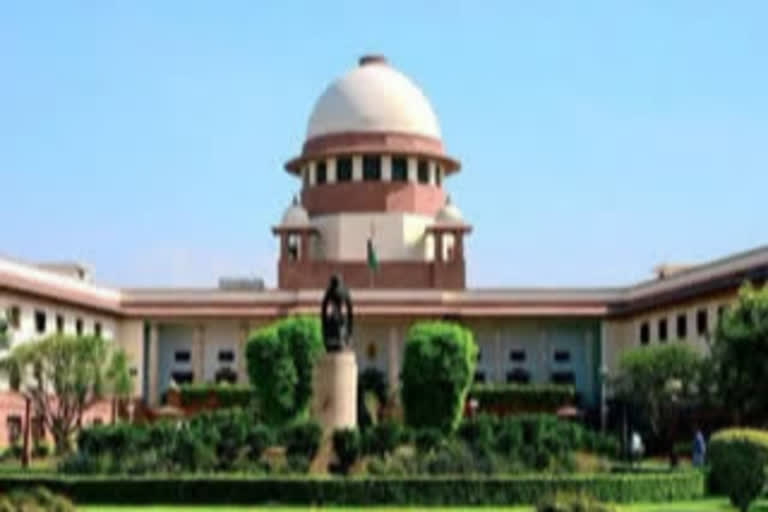New Delhi: Prior sanction from a competent authority is needed to prosecute a government servant for an alleged criminal act, the Supreme Court said on Friday while upholding an order of Rajasthan High Court granting protection to a government clerk in a land-related case.
A bench of Justices S K Kaul and Hemant Gupta said Section 197 of the CrPC seeks to protect from unnecessary harassment an officer, who is accused of an offence committed while acting or purporting to act in the discharge of his official duties.
The apex court said Section 197 of the CrPC prohibits the court from taking cognisance of such offence except with the previous sanction of the competent authority. Under section 197 of the Code of Criminal Procedure (CrPC), prior sanction from a competent officer is needed to prosecute a government servant for alleged criminal act done in discharge of his official duty and 'no court shall take cognizance of such offence except with the previous sanction'.
Public servants have been treated as a special category in order to protect them from malicious or vexatious prosecution, the bench said adding that at the same time, the shield cannot protect corrupt officers and the provisions must be construed in such a manner as to advance the cause of honesty, justice and good governance. 'The alleged indulgence of the officers in cheating, fabrication of records or misappropriation cannot be said to be in discharge of their official duty. 'However, such sanction is necessary if the offence alleged against the public servant is committed by him “while acting or purporting to act in the discharge of his official duty” and in order to find out whether the alleged offence is committed “while acting or purporting to act in the discharge of his official duty”,” the bench said.
The top court said the yardstick to be followed is to form a prima facie view of whether the act or omission for which the accused was charged had a reasonable connection with the discharge of his duties. The real question, therefore, is whether the act committed is directly concerned with the official duty, it said.
Read: SC dismisses contempt plea of Delhi government against Haryana on water supply
Referring to the case, the apex court said the fact that the clerk was not named in the FIR is not of much significance as the alleged role came to light later on. However, what is of significance is the role assigned to him in the alleged infraction, i.e. conspiring with his superiors, the bench said.
The top court said that in the processing of the application for sale of land, the file was initially put up to the Executive Officer who directed the inspection and the inspection was carried out by the Junior Engineer and only thereafter the Municipal Commissioner signed the file.
“The result is that the superior officers, who have dealt with the file, have been granted protection while the clerk, who did the paperwork, i.e. Respondent No.2, has been denied similar protection by the trial court even though the allegation is of really conspiring with his superior officers. “Neither the State nor the complainant appealed against the protection granted under Section 197 of the CrPC qua these two other officers. We are, thus, not able to appreciate why similar protection ought not to be granted to Respondent No.2 as was done in the case of the other two officials by the Trial Court and High Court respectively,' the bench said. The bench said that sanction from competent authority would be required to take cognisance and no sanction had been obtained in respect of any of the officers. “It is in view thereof that in respect of the other two officers, the proceedings were quashed and that is what the High Court has directed in the present case as well,” it said.
The top court was hearing an appeal filed by Rajasthan resident Indra Devi alleging that accused persons have committed the offences of fraudulently making a scheduled caste woman, her cancer diagnosed husband and other family members homeless.
Read: SC grants more time to complete Khori Gaon demolition
(PTI)



